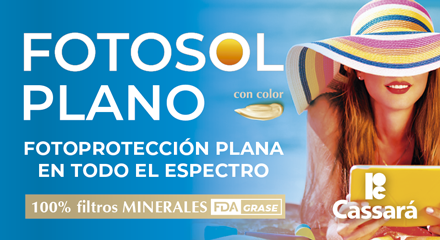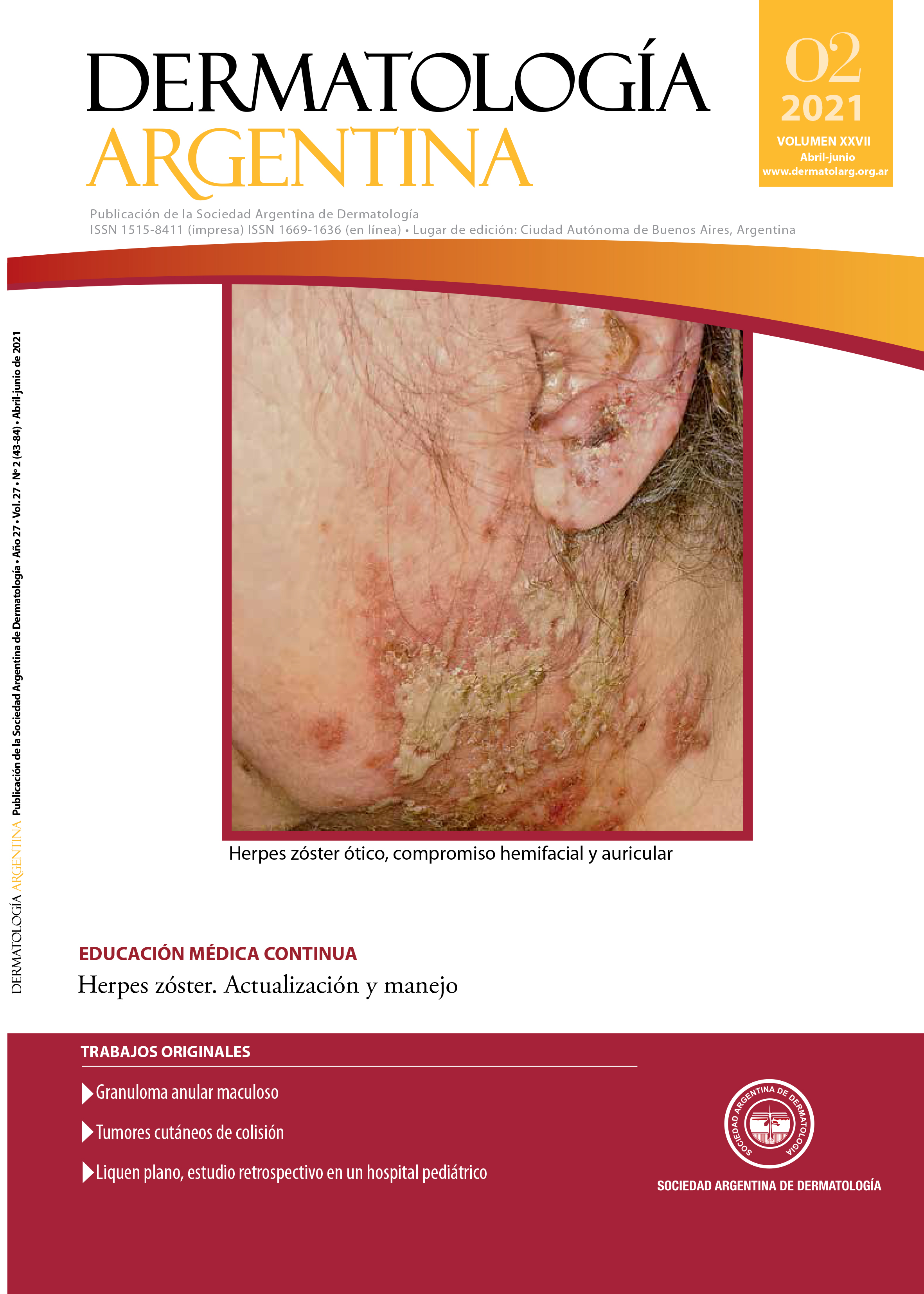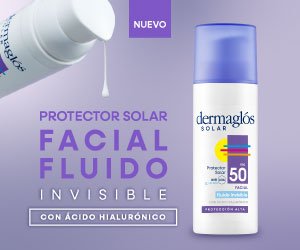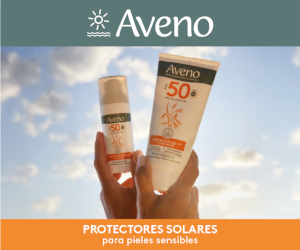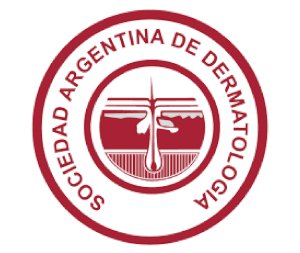Psoriasis paradójica palmoplantar secundaria al tratamiento de la colitis ulcerosa con adalimumab
DOI:
https://doi.org/10.47196/da.v27i2.2112Palabras clave:
psoriasis, psoriasis paradójica, colitis ulcerosa, Anti-TNF-alpha, adalimumab, ustekinumabResumen
Los anticuerpos anti-TNF-α (tumor necrosis factor alpha) se utilizan para tratar tanto la psoriasis como la enfermedad inflamatoria intestinal (EII). Sin embargo, estos fármacos han sido implicados en la ocurrencia de la psoriasis paradójica en los pacientes sin antecedentes de psoriasis que reciben tratamiento por una colitis ulcerosa (CU) y otras enfermedades autoinmunes. Se presenta el caso de un paciente de 29 años, sin antecedentes de dermatosis, que desarrolló una psoriasis palmoplantar paradójica por el uso del adalimumab que recibía por un diagnóstico de CU. El cuadro remitió al suspender el medicamento y recurrió al reiniciarlo, motivo por el cual se rotó al ustekinumab. La CU respondió satisfactoriamente, sin nuevas lesiones dermatológicas.
Citas
I. Lindhaus C, Tittelbach J, Elsner P. Cutaneous side effects of TNF-alpha inhibitors. J Dtsch Dermatol Ges. 2017;15:281-288.
II. Collamer AN, Battafarano DF. Psoriatic skin lesions induced by tumor necrosis factor antagonist therapy: clinical features and possible immunopathogenesis. Semin Arthritis Rheum. 2010;40:233-240.
III. Cullen G, Kroshinsky D, Cheifetz AS, Korzenik JR. Psoriasis associated with anti-tumour necrosis factor therapy in inflammatory bowel disease: a new series and a review of 120 cases from the literature. Aliment Pharmacol Ther. 2011;34:1318-1327.
IV. Tillack C, Ehmann LM, Friedrich M, et ál. Anti-TNF antibody-induced psoriasiform skin lesions in patients with inflammatory bowel disease are characterized by interferon-γ-expressing Th1 cells and IL-17A/IL-22-expressing Th17 cells and respond to anti-IL-12/IL-23 antibody treatment. Gut. 2014;63:567-577.
V. Kolios AGA, Biedermann L, Weber A, et ál. Paradoxical ulcerative colitis during adalimumab treatment of psoriasis resolved by switch to ustekinumab. Br J Dermatol. 2018;178:551-555.
VI. Rahier JF, Buche S, Peyrin-Biroulet L, et ál. Severe skin lesions cause patients with inflammatory bowel disease to discontinue anti-tumor necrosis factor therapy. Clin Gastroenterol Hepatol. 2010;8:1048-1055.
VII. Whitlock SM, Enos CW, Armstrong AW, et ál. Management of psoriasis in patients with inflammatory bowel disease: From the Medical Board of the National Psoriasis Foundation. J Am Acad Dermatol. 2018;78:383-394.
VIII. Cohen AD, Dreiher J, Birkenfeld S. Psoriasis associated with ulcerative colitis and Crohn's disease. J Eur Acad Dermatol Venereol. 2009;23:561-565.
Descargas
Publicado
Número
Sección
Licencia
Derechos de autor 2021 Dermatología Argentina

Esta obra está bajo una licencia internacional Creative Commons Atribución-NoComercial-SinDerivadas 4.0.
El/los autor/es tranfieren todos los derechos de autor del manuscrito arriba mencionado a Dermatología Argentina en el caso de que el trabajo sea publicado. El/los autor/es declaran que el artículo es original, que no infringe ningún derecho de propiedad intelectual u otros derechos de terceros, que no se encuentra bajo consideración de otra revista y que no ha sido previamente publicado.
Le solicitamos haga click aquí para imprimir, firmar y enviar por correo postal la transferencia de los derechos de autor


